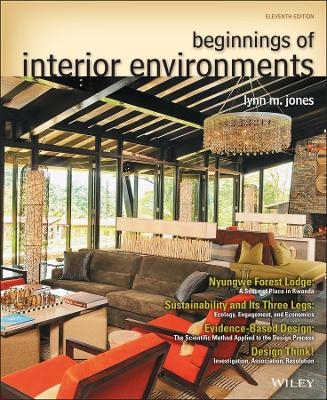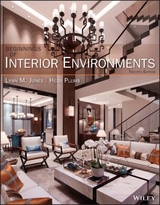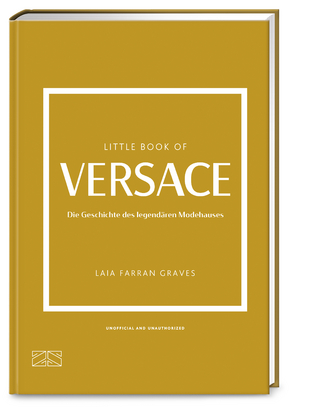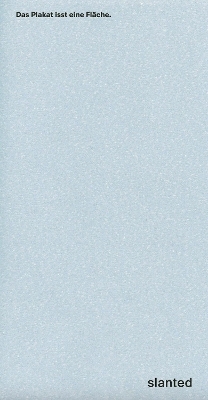
Beginnings of Interior Environments
John Wiley & Sons Inc (Verlag)
978-1-119-84992-6 (ISBN)
- Titel erscheint in neuer Auflage
- Artikel merken
In this Eleventh Edition of Beginnings of Interior Environments, accomplished interior designer and professor Lynn M. Jones delivers a balanced and comprehensive overview of commercial and residential interior design. Written to offer coverage of the creative and technical characteristics of the profession, the text also addresses Council for Interior Design Accreditation (CIDA) content.
The book presents topics on the scope of the profession, spatial development, and visual literacy while also reviewing the factors of quality aesthetics. Hundreds of images from actual design projects, supplied by national and international design firms, illustrate the design process. “Design Scenarios,” or case studies, demonstrate examples of professional practice and in-house production work students are likely to encounter during their career.
The text discusses issues of global importance, from sustainability to universal design; a pictorial essay reviews the history of style. Readers will also enjoy:
An introduction to interior environments, including the fundamentals of interior design and the health, safety, and welfare benefits of interior design
An exploration of design fundamentals, including the elements and principles of design, with a special emphasis on color
Practical discussions on building construction, including construction components and codes, as well as lighting, electrical, and communication systems
An entire section dedicated to interior finishes—upholstery, wallcoverings, and floorings—and furnishings—furniture, art, and accessories
In-depth examinations of the profession of interior design, including career opportunities
Beginnings of Interior Environments is perfect for students in an introductory interior design course, and an indispensable resource for anyone seeking a balanced interior design perspective for their home or office.
Lynn M. Jones leads Jones Interiors & Consulting with a focus on interior space planning and the partnership of practice and education. She serves as a program consultant for the Council for Interior Design Accreditation, and is a professional member of the American Society of Interior Designers and the Interior Design Educators Council.
Preface xv
Part I Introduction to Interior Environments 1
Definition of Interior Design and Responsibilities of an Interior Designer 2
Relationship with Allied Professions 6
Traits and Knowledge Required by Interior Designers 6
Textbook Organization 6
1 Understanding Interior Design 9
Development of the Interior Design Profession 9
Professional Design Organizations 10
Goals of Interior Design 11
The Design Process/Scope of Services 13
Career Specializations in Interior Design 22
Summary 24
Design Scenario: Fortune 500 Consumer Products Company 25
2 The Value of Interior Design: Health, Safety, and Welfare 33
Health, Safety, and Welfare 33
Interior Environment Theory: Why We Need the Built Environment 34
Historic Preservation 36
Multicultural Environments 38
The Science of Spatial Behavior 40
Universal Design 42
Design for Special Populations 44
Evidence-Based Design 47
Environment: Sustainable Design 48
Summary 51
Design Scenario: Willson Hospice House 53
Pictorial Essay: History of Style 56
History of Style 56
Historical Styles and Their Evolution 56
Historical Styles Summary 72
Evolution of Modern Design 72
Modern Design Summary 82
Style Selection 82
Part II Design Fundamentals 85
Design Think! 86
Visual Literacy 88
Gestalt and Perceptual Theories Concept 90
3 Elements and Principles of Design 99
Two Basic Types of Design 99
Elements of Design 102
Principles of Design 107
Summary 115
4 Color 117
Light in Color 117
Warm, Cool, and Neutral Colors 118
The Standard Color Wheel 118
Color’s Three Dimensions 119
Creating Color Schemes 120
Color Theorists and Theories 125
Sustainable Design: Natural Earth Colors 126
Psychological and Physiological Effects of Colors 127
Interactions Between Color and the Elements and Principles of Design 132
Application of Color to Interior Backgrounds 135
Selection of a Color Scheme 136
Color Forecasting 137
Summary 138
Design Scenario: Community Concept–UPS Innoplex 139
Part III Building Systems 149
The Construction Process 150
5 Construction Components, Systems, and Codes 155
Contract Documents 155
Structural Classifications 163
Doors 165
Windows 169
Sustainable Design: Low E-Glass 172
Fireplaces 173
Heating, Ventilating, and Air-Conditioning (HVAC) Systems 176
Sustainable Design: Solar Energy 176
Sustainable Design: Indoor Air Quality 177
Plumbing 178
Acoustics 180
Security 181
Emergency: Egress and Sprinklers 181
Codes and Federal Regulations 181
Federal Requirements Summary 183
6 Lighting, Electrical, and Communications 185
Goals of Lighting Design 185
Sustainable Design: Energy Codes and Lighting in LEED 191
Organizations and Regulations 191
The Quantity of Light 192
The Quality of Light: Color and Location 193
Natural Light Sources 194
Artificial Light Sources 195
Lighting for Areas and Activities 204
Power and Communication 207
Design Guidelines for Lighting, Power, and Communications 210
Summary 211
Design Scenario: Beachfront Condminium 212
Part IV Space 217
Form and Space 220
Space Planning 220
Square Footage Calculations 221
7 Space Planning: Furnishings to Rooms 223
Programming Information for Space Planning 223
Space Planning for Specific Activities 226
Space Planning for Specific Rooms 232
Making the Most of Space with Furniture 244
Summary 245
8 Space Planning: Rooms to Buildings 247
Residential Zones 248
Commercial Zones 256
General Zoning Requirements 259
Sustainable Design: The Economy of Space Planning 262
Organizing Systems 264
Analyzing Residential Floor Plans 267
Analyzing Commercial Floor Plans 277
Summary 279
Design Scenario: Residential Loft and Commercial Real Estate Office 280
Part V Materials, Furnishings, and Fabrics 287
Function 288
Aesthetics 288
Economics 289
9 Floors 291
Hard Flooring 291
Nonresilient Flooring 292
Wood Flooring 297
Resilient Flooring 299
Soft Floor Coverings 301
History of Rugs and Carpets 301
Design Characteristics 302
Sustainable Design: Flooring Materials 303
Handmade Rugs 307
Padding 311
Design Considerations 311
Codes and Regulations 312
Measuring and Installation 312
Summary 313
10 Ceilings and Walls 315
Ceilings 315
Types of Ceilings 315
Ceiling Construction and Materials 318
Ceiling Illusions 319
Walls 321
Wall Construction 321
Sustainable Design: Moveable Wall Systems 321
Nonresilient (Rigid) Wallcoverings 321
Moldings 328
Paints and Finishes 330
Resilient (Flexible) Wallcoverings 333
Estimating Wallcovering Quantities 336
Selecting Wall Materials and Finishes 336
Summary 337
11 Furniture 339
Types of Furniture 339
Systems Furniture 347
General Classifications of Furniture Styles 349
Quality and Craftsmanship 352
Upholstered Furniture 358
Summary 360
Sustainable Design: Selecting “Green” Furniture 360
Sustainable Design: LEED-CI and E3-2010 361
12 Textiles 365
Fibers 366
Fabric Construction 369
Textile Coloring/Dyeing 372
Finishing 372
Sustainable Design: Colored Fibers and “Green” Textiles 373
Fabric Testing and Safety Codes 374
Textile Care and Maintenance 377
Textile Uses in Interior Design 377
Selecting Textiles for Interiors 380
Solving Design Problems with Textiles 386
Summary 388
Textile Terminology 388
13 Window Treatments, Accessories, and Art 393
Window Treatments 393
Hard Window Treatments 394
Soft Window Treatments 400
Window Top Treatments 404
Window Treatment Hardware 406
Drapery and Curtain Headings 406
Design and Placement of Windows and Window Treatments 407
Sustainable Design: Energy-Efficient Window Treatments 408
Accessories 408
Art 410
Two-Dimensional Art 410
Three-Dimensional Art 411
Selecting Accessories and Art 413
Grouping and Placing Accessories and Art 415
Summary 417
Living Room Comparison 418
Design Scenario: Lifetime Television 420
Part VI The Profession Of Interior Design 427
14 Interior Design as a Career 431
Career Progression 431
Professional Interior Design Organizations 438
The Business of Interior Design 441
Professional Ethics 446
Interior Design Forecast 447
Sustainable Design: Solar Architecture and the Earthship 456
Summary 458
Design Scenario: Stonehurst Place 459
Appendix A Residential Programming Questionnaire 465
Appendix B Furniture Inventory Sheet 469
Appendix C Typical Set of Residential Construction Drawings 471
Glossary 477
References 485
Index 491
| Erscheinungsdatum | 04.11.2021 |
|---|---|
| Verlagsort | New York |
| Sprache | englisch |
| Maße | 238 x 286 mm |
| Gewicht | 1514 g |
| Themenwelt | Kunst / Musik / Theater ► Design / Innenarchitektur / Mode |
| Technik ► Architektur | |
| ISBN-10 | 1-119-84992-6 / 1119849926 |
| ISBN-13 | 978-1-119-84992-6 / 9781119849926 |
| Zustand | Neuware |
| Informationen gemäß Produktsicherheitsverordnung (GPSR) | |
| Haben Sie eine Frage zum Produkt? |
aus dem Bereich



